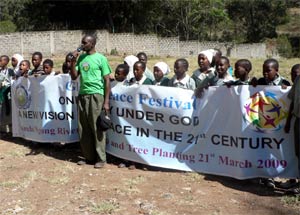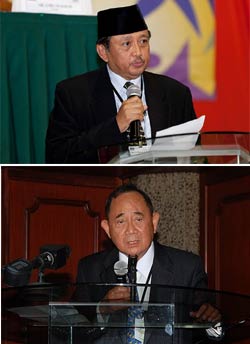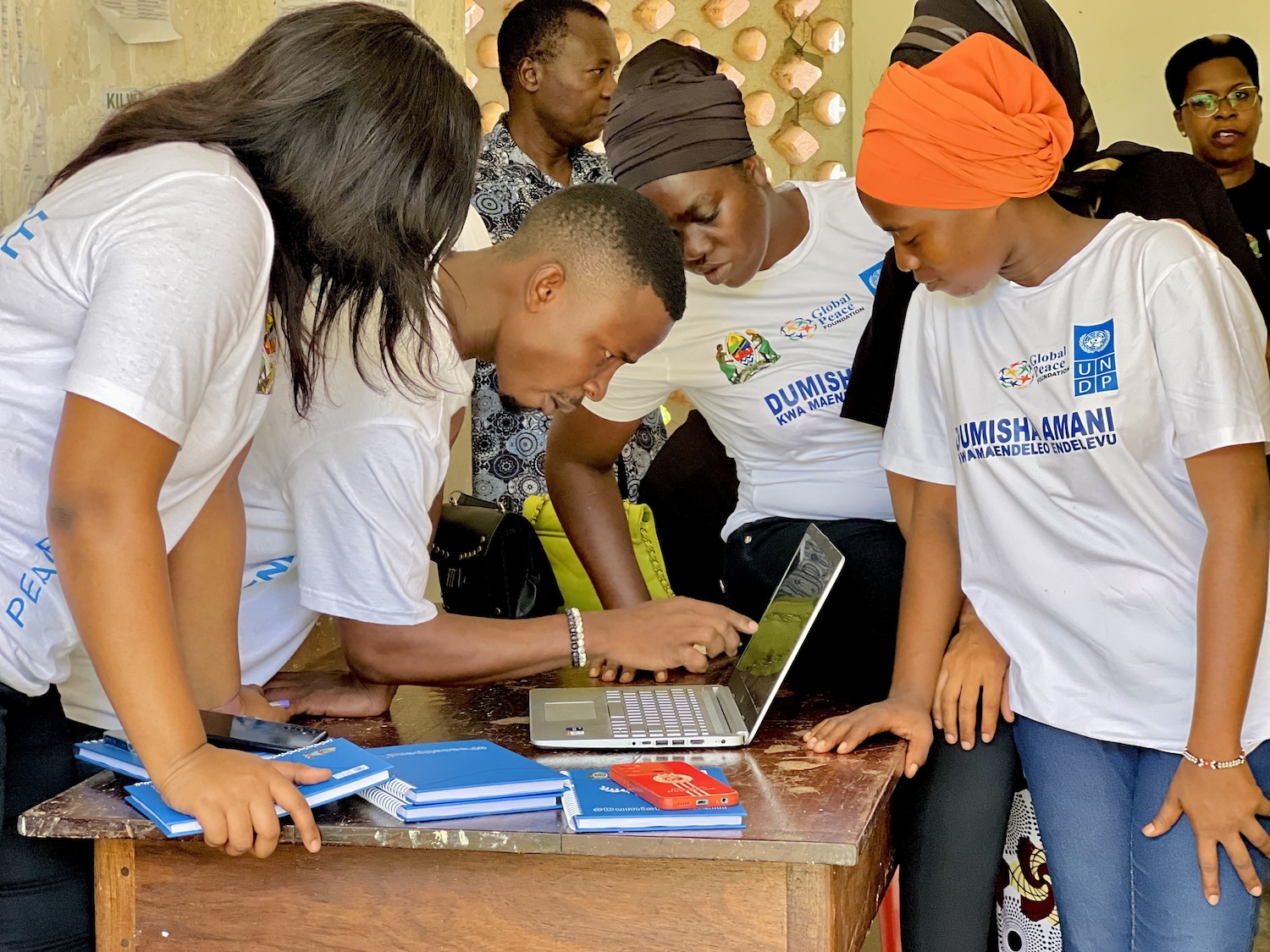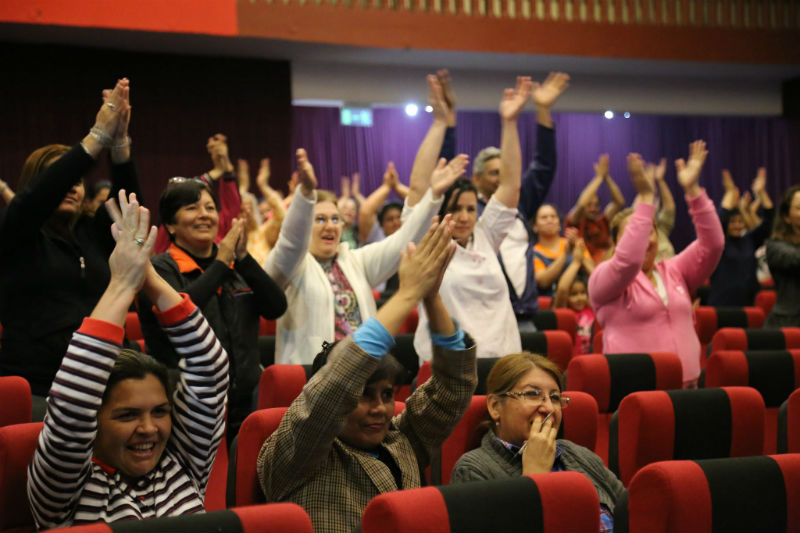 Peace cannot be forced from above; it must spontaneously be fostered from below by the efforts by all, women and men, civil society and the private sector, all of whom stand to gain by the achievement of peace,” said African Union Commission deputy chairman Erastus Mwencha at the opening session of the Global Peace Convention in Nairobi.
Peace cannot be forced from above; it must spontaneously be fostered from below by the efforts by all, women and men, civil society and the private sector, all of whom stand to gain by the achievement of peace,” said African Union Commission deputy chairman Erastus Mwencha at the opening session of the Global Peace Convention in Nairobi.
The Global Peace Convention is the annual meeting of the Global Peace Foundation. The Global Peace Foundation was created in 2009 by by Dr. Hyun Jin Moon to introduce innovative solutions to peace and development that incorporate spiritual values.
Speaking to delegates from 40 nations on the Convention theme, “Conflict Resolution Peace and Development,” the deputy chairman offered a realistic assessment of persistent conflicts in Africa that impede economic growth, undermine political stability, and threaten the safety and security of millions of people.
Mwencha said the Convention theme of conflict prevention and peace coincided with the African Union’s call to all African nations to support the objectives of the 2010 Year of Peace and Security in Africa through engaging in activities to “Make Peace Happen.” The African Union has been working toward the resolution and prevention of conflicts since its founding, he said, “placing a particular emphasis on the entrenchment of democracy, the rule of law, governance, and human rights.”
Once peace is attained, he added, “It is critical that countries and communities do not lapse back into conflict and instability. The only way of ensuring this is by addressing the root causes of conflict, which in many cases are linked to resource management and access to development opportunities, particularly among the youth.” More than 60 percent of Africa’s 1 billion people are under the age 25, the deputy chairman noted, and Africa has fastest growing youth population of any region in the world.
‘United in Diversity’
Also addressing delegates at the November 2010 Convention, Dr. Slamet Yusuf Effendi, Vice Chairman of Nahdlatul Ulama (NU), the largest Muslim organization in the world, emphasized the importance of cooperation and respect across ethnic and religious divisions as a key to peace. Dr. Slamet said the Indonesian national motto, “United in Diversity,” well described the nation of 238 million, comprised of thousands of islands, 130 ethnic groups, and a multiplicity of faiths. Although Indonesia has an 87 percent majority Muslim population, “Buddhists, Hindus, Confucianists, and Christians live together in harmony,” he said.
“The world will not know peace and harmony until we can develop an attitude of sharing, caring, and love for fellow man beyond ethnicity, race, and religion.”
Dr. Slamet explained that NU’s guiding philosophy was based on three pillars: tawasuth, meaning moderation, founded on principles of justice and avoidance of extremism; tasamuh, or tolerance, which appreciates different views and recognizes Indonesia’s socio-cultural diversity; and tawazun, meaning a balanced approach that strives for harmonious relationships among fellow human beings and between humans and God.
He said NU is working with other religious groups to support peace in conflict zones, and noted specifically that NU was a co-organizer with the Global Peace Foundation of the Global Peace Leadership Conference and Global Peace Festival in Jakarta October 2010. Calling for “a new paradigm of cooperation and dialogue” he urged those of different religious backgrounds to cooperate to address the problems of poverty, inequality, and injustice. “The world will not know peace and harmony until we can develop an attitude of sharing, caring, and love for fellow man beyond ethnicity, race, and religion,” Dr. Slamet said.
New approaches to answer poverty, climate change

Speakers at the Global Peace Convention 2010 in Nairobi.
Hon. Jose DeVenecia, former Speaker of the Philippine Parliament, urged political leaders at the session to build bold new political coalitions to address issues of poverty and climate change. He reminded delegates that in the year 2000, representatives from 191 nations at the United Nations agreed to jointly take steps to reduce global poverty by 50 percent by 2015.
Noting the disappointing progress made toward that benchmark, Hon. DeVenecia proposed that the Convention present a resolution to strongly urge the United Nations, as well as leaders of Asia, Africa, Europe, the United States, the World Bank, and the IMF, to mobilize funds to reduce poverty. “Since 102 nations of the world owe about $2.3 billion to G-20 countries and commercial banks,” he said, “we should reduce these annual debt payments by 50 percent and convert these funds to finance antipoverty programs as well as the campaign against environmental degradation and climate change.”
Hon. DeVenecia told the Convention that coalitions among political parties, such as the power-sharing arrangement in Kenya, hold the promise of reducing conflict. He said that the International Conference of Asian Political Parties, which he co-chairs, had now established links with political parties in Latin America and the Caribbean and were also in contact with key political parties in Africa.
“Under the leadership President Kibaki, under the leadership of the Global Peace Convention and Dr. Hyun Jin Moon and of those who are gathered here,” Hon. DeVenecia declared, “let us unite the political parties of Asia, the political parties of Latin America and the political parties of Africa.” Such an historic alliance among political parties of emerging nations he said offered a new approach to fight poverty climate change, and extremism. “Let us begin here at the Global Peace Convention to create such an historic alliance and we will have the beginnings and the substance of One Family under God.”



